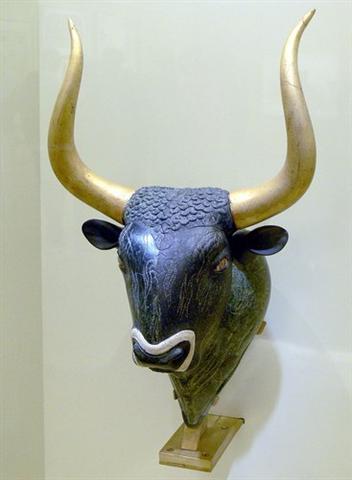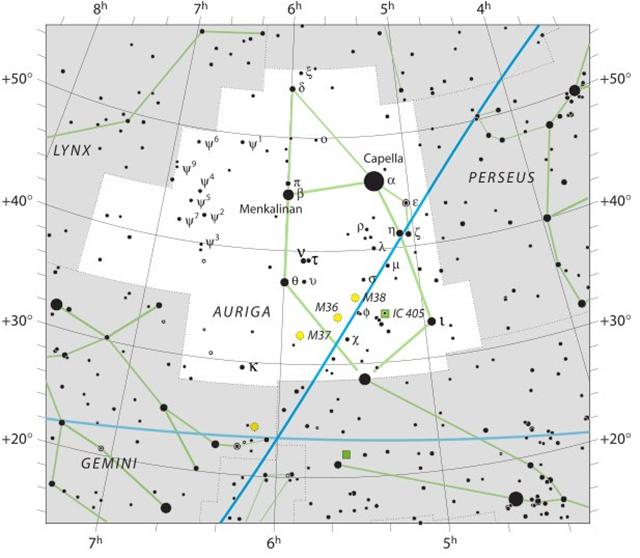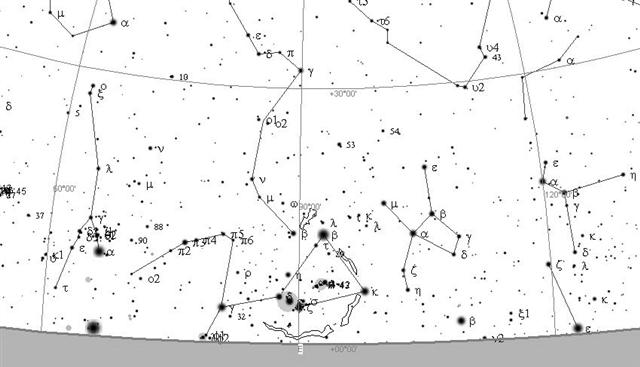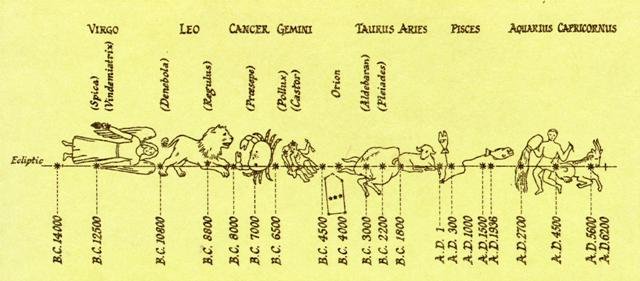Aldebaran came immediately beyond the last variant of banana shoot:
... (There were) five hundred baskets of banana shoots, a thousand baskets of taro, fifty bundles of long ti roots, and ten baskets of little kape seedlings. [500 + 1000 + 50 + 10 = 26 * 60.] They tied up the baskets carefully, and Oti said to his assistants, 'Take all the baskets [ka mau tahi te taropa] on board the canoe [ki runga ki te miro], as well as [tokoa] the hundreds of [?] ti roots!' The men picked up the baskets and brought them on board the canoe. They arrived and left them there [he tuu he hakarere] ... [E:68-69] Twice as many baskets of taro as baskets of banana shoots were taken on board the Royal Double Canoe by the men of Oti:
In the G text Aldebaran was depicted as vaha mea - viz. the red opening at the Julian spring equinox (north of the equator and at the time of the Bull). Half a year later at Antares this figure turned around in order to show his tail (end) - it was autumn equinox:
The name of the last variant of taro was significantly not ending with a dot
Instead a kind of misalignment (hahara) was pointed out in the name of the last variant of taro. The position at the end was important we can see e.g. from Sirrah, Bharani, and Beid. And Omega (Ω) preceded Alpha.
Presumably this misalignment was referring to the following right ascension day *78 at Rigel (which would explain why there was no dot at the end of 10 he hahara rapanui). ... In view of the almost universal prevalence of the Pleiades year throughout the Polynesian area it is surprising to find that in the South Island and certain parts of the North Island of New Zealand and in the neighboring Chatham Islands, the year began with the new Moon after the yearly morning rising, not of the Pleiades, but of the star Rigel in Orion ... Orion was not in alignment with the other figures in the zodiac:
The Pleiades (*55 - *56) - corresponding to the kumara variants 14 he piu tahi and 15 he tuitui koviro - Piu. Ta.: piu, to pull in a fishing-line. Ha.: piu, to skip with a rope. Churchill. Tui. 1. To sew mats, to make strings. E-tahi tuitui reipį i Te Pei, ekó rava'a e-varu kaukau; i-garo ai i Hiva, i te kaiga, a necklace of mother-of-pearl is on te Pei, few will find it (lit: eight groups of people); it has remained in Hiva, in our homeland. 2. The three stars of Orion's Belt. Vanaga. were not given a very prominent position in Manuscript E. ... They go inland at the land. The child nursed and tended grows up, is able to go and play. Each day he now goes off a bit further away, moving some distance away from the house, and then returns to their house. So it goes on and the child is fully grown and goes to play far away from the place where they live. He goes over to where some work is being done by a father and son. Likāvaka is the name of the father - a canoe-builder, while his son is Kiukava. Taetagaloa goes right over there and steps forward to the stern of the canoe saying - his words are these: 'The canoe is crooked.' (kalo ki ama). Instantly Likāvaka is enraged at the words of the child. Likāvaka says: 'Who the hell are you to come and tell me that the canoe is crooked?' Taetagaloa replies: 'Come and stand over here and see that the canoe is crooked.' Likāvaka goes over and stands right at the place Taetagaloa told him to at the stern of the canoe. Looking forward, Taetagaloa is right, the canoe is crooked. He slices through all the lashings of the canoe to straighten the timbers. He realigns the timbers. First he must again position the supports, then place the timbers correctly in them, but Kuikava the son of Likāvaka goes over and stands upon one support. His father Likāvaka rushes right over and strikes his son Kuikava with his adze. Thus Kuikava dies. Taetagaloa goes over at once and brings the son of Likāvaka, Kuikava, back to life. Then he again aligns the supports correctly and helps Likāvaka in building the canoe. Working working it is finished ... With Rigel at the beginning of the new year, the preceding enumerated 10 taro variants should be at the end (at the stern) of the old year. Ha-hara could mean the end of the 4th (ha) quarter. Ha. 1. Four. 2. To breathe. Hakaha'a, to flay, to skin. Vanaga. 1. Four. P Mgv., Mq., Ta.: ha, id. 2. To yawn, to gape. 3. To heat. 4. Hakaha, to skin, to flay; unahi hakaha, to scale fish. Mgv.: akaha, to take to pieces, to take off the bark or skin, to strip the leaves off sugarcane. 5. Mgv: ha, sacred, prohibited. Mq.: a, a sacred spot. Sa.: sa, id. Churchill. Or we could read haha-ra - the Mouth (Entrance, Door) - for the sun (ra). Haha. 1. Mouth (oral cavity, as opposed to gutu, lips). 2. To carry piggy-back. He haha te poki i toona matu'a, the child took his father on his back. Ka haha mai, get onto my back (so I may carry you). Vanaga. 1. To grope, to feel one's way; po haha, darkness, obscure. 2. Mouth, chops, door, entrance, window; haha pipi, small mouth; haha pipiro, foul breath; ohio haha, bit of bridle; tiaki haha, porter, doorkeeper. Churchill. The Opening of the Mouth in order to breathe in the life-giving oxygen in the air was a necessity for a newborn child. ... The king, wearing now a short, stiff archaic mantle, walks in a grave and stately manner to the sanctuary of the wolf-god Upwaut, the 'Opener of the Way', where he anoints the sacred standard and, preceded by this, marches to the palace chapel, into which he disappears. A period of time elapses during which the pharaoh is no longer manifest. When he reappears he is clothed as in the Narmer palette, wearing the kilt with Hathor belt and bull's tail attatched. In his right hand he holds the flail scepter and in his left, instead of the usual crook of the Good Shepherd, an object resembling a small scroll, called the Will, the House Document, or Secret of the Two Partners, which he exhibits in triumph, proclaiming to all in attendance that it was given him by his dead father Osiris, in the presence of the earth-god Geb. 'I have run', he cries, 'holding the Secret of the Two Partners, the Will that my father has given me before Geb. I have passed through the land and touched the four sides of it. I traverse it as I desire.' ...
|
|||||||||||||||||||||||||||||||||||||||||||||||||||||||||||||||||||||||||||||||||||||||||||||||||||||||||||||||||||||||||||||||||||||||||||||||||||||||||||||||||||||||||||||||||||||||||||||||||||||||||||||||||||||||||||||||||||||||||||||||||||||||||||||||||||||||||||||||||||||||||||||||||||||||||||||||














.jpg)